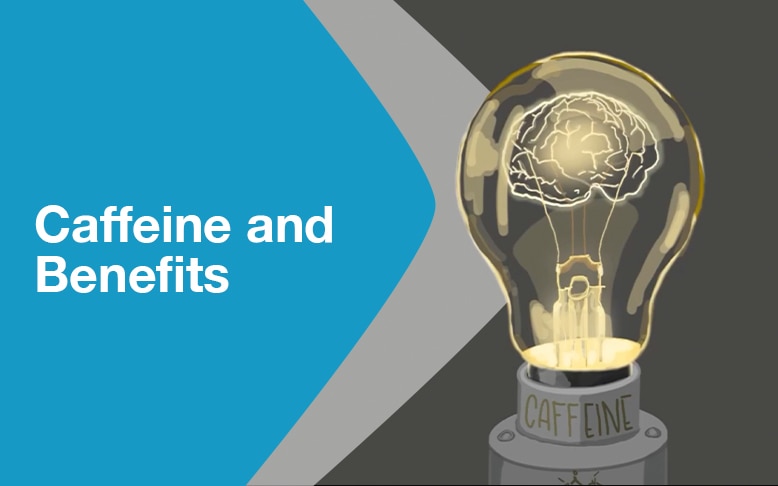Introduction

Coffee is life to millions of people around the world today. Whether they like a steaming hot coffee as a daily wake-up call and a kick-starter for a new day, or a cold espresso as an energy-booster to keep them going, stay alert, and improve their concentration, certainly, it’s hard for the coffeeholics to even imagine a day without coffee.
But is drinking coffee every single day good for one’s health? Here’s what you need to know about whether coffee consumption should be a regular part of a person’s lifestyle.
Why Coffee is Good for You

People surely love their coffee because of the aroma, the bittersweet flavor, the energizing feeling, and the sensory pleasure it gives them. But there’s one important reason why drinking coffee is good for the body.
Coffee is a rich source of compounds that have bioactive activities, such as antiproliferative, antioxidant and antimicrobial effects.1 In fact, coffee is one of the best dietary sources of antioxidants. A cup of coffee is packed with 200 to 550 milligrams of antioxidants.2 It has hydroxycinnamic acids, micronutrients that neutralize free radicals to prevent oxidative stress, and polyphenols, a plant compound that also favors neutralizing free radicals in preventing cancer, heart disease and Type 2 diabetes.
Antioxidants stabilize free radicals in the body, lower inflammation and help prevent oxidative stress that causes aging and certain chronic diseases.3,4
Health experts recommend getting 8-11,000 antioxidant units a day in food to protect the body from cell damage caused by free radical buildup and to help boost the immune system.4 To achieve more antioxidants, all we have to do is consume lots of plant-based foods such as fruits and vegetables. And yes, coffee!
Evidences of Coffee Consumption Health Benefits

In the past, coffee’s reputation had leaned towards being unhealthy. Recently, there are several impactful cohort studies on coffee that links to good health published by top notch medical researchers.
- Coffee and the Heart
A study of more than 8000 people in the UK found that drinking coffee is not associated with stiffness of arteries. This debunks previous studies, which suggest that coffee consumption leads to artery stiffness.5 In addition, the risk of heart failure is also found to be negatively correlated with moderate coffee consumption (1-3 cups per day), with the highest inverse correlation being reported for consumption of 4 servings per day.6
- Coffee and the Kidney
A study published by the Kidney International Reports, an official journal of the International Society of Nephrology, reveals that drinking any amount of coffee a day may reduce the risk of acute kidney injury (AKI).7 It was shown that people who drank any quantity of coffee everyday had a 15% lower risk of AKI than those who never consumed coffee. What's more, the study showed that people who drank two to three cups of coffee per day had the largest AKI risk reduction (22-23%).
- Coffee and the Liver
A cohort study involving more than 215,000 men and women showed that drinking 2-3 cups of coffee per day had a 38% reduced risk for liver cancer (RR = 0.62; 95% CI: 0.46–0.84) while those who consumed 4 cups per day recorded a 41% risk reduction in liver cancer (RR = 0.59; 95% CI: 0.35–0.99) compared to non-coffee drinkers.8
A review of several studies summarized the potential positive or preventive effects of coffee on liver malignancy as well as chronic liver disease.9 Researchers found that the beneficial effect of coffee consumption ranges from improvement of liver enzyme lab test to improved mortality from cirrhosis, liver cancer and other malignant and chronic liver diseases secondary to non-alcoholic fatty liver diseases.9
The research team said, though, that more studies are still needed to evaluate any possible delayed onset of fibrosis among coffee drinkers compared to non-coffee drinkers.
- Coffee and the Elderly

In a report by the Cardiovascular Risk Factors, Aging, and Dementia (CAIDE) on their completed study that followed people from middle age into their seventies and older, researchers found that caffeine may lower seniors' risk of late-life dementia and Alzheimer’s disease (AD).10 According to this study, consumption of 3 to 5 cups of coffee per day reduced the risk of dementia by 65% and AD by 64%. In addition, among men, high coffee drinkers had a considerably lower risk of dementia than low coffee drinkers (OR = 0.36; 0.13–0.97).
In addition, researchers from the National Institutes of Health and the American Association of Retired Persons found that older people who consumed coffee regularly had a lower chance of overall risk of death compared with those who did not drink coffee.11 Males who drank 6 or more cups of coffee per day had a 10% reduced risk of death than males who did not, while women in the same consumption category had 15% lower risk. This association is similar whether people consumed more caffeinated or decaffeinated coffee.11
Other potential benefits of coffee consumption for the elderly have been documented and these include: improved cognition, improved mental health, increased energy levels, and a reduced risk of stroke and heart failure.12
Safety and Consequences of Coffee Consumption
Coffee has numerous health benefits as shown by research, but overindulging on a daily basis poses health risks, too. Why?
It’s because coffee contains caffeine, a stimulant drug that speeds up activity in the central nervous systemthat causes mental alertness, wakefulness and other side effects.
When the brain is stimulated by caffeine, the pituitary gland stimulates the adrenal glands to release two hormones – the adrenaline, which functions to increase heart rate and blood pressure, and cortisol, the “stress hormone,” which increases blood sugar.
Too much caffeine intake can lead to these side-effects:
Drinking several cups of coffee a day more than the experts’ recommendations for a long period of time can lead to excess caffeine intake. A person with excessive caffeine intake may show signs of anxiety, headache, restlessness, insomnia, increased heart rate, jitteriness, and muscle tremors.

- Caffeine causes diuresis13 that leads to frequent urination, thus flushing out small amounts of water-soluble B vitamins and vitamin C, and minerals like calciumand iron.
- Coffee has a high acid content, which may make acid reflux worse and can cause ulcers.
Caffeine Content by Coffee Type

Coffee is brewed from roasted and ground seeds of the tropical evergreen coffee plant.14 The caffeine is extracted from the plant, which will be used in different foods and beverages. Occurring in more than 60 plant species across the globe, caffeine is naturally found in the seeds of coffee beans, cacao beans and Kola nuts, and tea leaves and buds.15
Different types of coffee vary in their caffeine content. Instant coffee usually has less caffeine content than brewed coffee. A 2-gram instant coffee powder contains about 63 mg of caffeine, while an 8-ounce cup of brewed coffee contains 92 mg of caffeine.16
What about 3-in-1 coffees and specialty coffees?
In Singapore, an analysis found that 3-in-1 coffees contained an average of 60.9 mg/100 ml, which is higher than the instant black coffee (45.8 mg/100 ml) and canned and bottled commercial coffee (42.7 mg/100 ml).17 Specialty coffees in cafes registered the highest caffeine level at 95.3 mg/100 ml.

For further guidance, here’s a table adapted from the Food Standards Australia and New Zealand (2019) on the average caffeine content per caffeinated product.18
Table 1. Average caffeine levels of various types of products
| Product | Average caffeine content |
|---|---|
| Espresso | 145 mg caffeine per 50ml cup |
| Caffeinated beverage or energy drink | 80 mg caffeine per 250ml cup |
| Instant coffee (1 teaspoon per cup) | 80 mg caffeine per 250ml cup |
| Black tea | 50 mg caffeine per 220ml cup |
| Cola drinks | 36.4 mg caffeine per 375 ml can |
| Milk chocolate | 10 mg caffeine per 50g bar |
In the Philippine setting, coffee is among the top five most commonly consumed foods in the country, according to the Food Consumption Survey (FCS) conducted by the FNRI-DOST in 2013.19 Instant black coffee powder and 3-in-1 coffees are popular among the Filipino masses. In addition, in the Philippine Food Exchange Lists created by DOST-FNRI, coffee is included in the category of Free Foods which means any food and drink that contains few calories less than 16 kcal per serving.20
Coffee contains almost no calories21 and no fat,22 but the added sugar, creamer, milk, flavored sugar syrups, whipped cream, and shaved chocolate in your lattes, cappuccino or iced cold coffee can contribute to extra sugar and calorie intake, especially if consumed often. So if you are conscious of your caloric intake, then choose the black coffee instead. Always check the nutrition label of the coffee product you order.
How Much Caffeine is Safe to Consume Everyday?
Adults
- According to the Dietary Guidelines for Americans, a moderate amount of coffee is equivalent to about 3-5 cups per day of brewed coffee, or an average of 400 mg caffeine.23 An 8-ounce cup contains about 95 mg of caffeine.24
Children and Teenagers
- Since the effects of caffeine on children and adolescents are not fully understood, the American Academy of Pediatrics discourages children and adolescents from taking caffeine and other stimulants. Currently, no caffeine level is defined for children under the age of 12.23 For children aged 12 to 18, the American Academy of Child and Adolescent Psychiatry advises limiting caffeine intake to no more than 100 mg per day25 as too much caffeine can cause increased anxiety, increased heart rate and blood pressure, acid reflux, and sleep disturbance.
Pregnant women
- Expectant moms are advised to limit their intake to less than 200 mg of caffeine daily.26,27 Caffeine can cross the placenta to the fetus27 and has been linked with pregnancy loss and low birth weight.26 Enjoying decaffeinated coffee can put caffeine intake in check.
Seniors
- Moderate amounts of 50-100 mg of caffeine or 5-10 g of coffee powder a day were found to be well tolerated by a majority of elderly people.28 Excessive daily coffee intake in elderly may pose health risks, even life-threatening side effects. Caffeine is classified as a stimulant drug that works on the nervous system. Moreover, considering that caffeine has an effect on drug-nutrient interaction, it can affect the absorption rate of certain drugs. Thus, this is not a good choice for a senior who indulges in more cups and is caffeine-sensitive or has maintenance drugs. Seniors are also challenged with sleep issues and frequent urination. Experts advise to avoid caffeine at least four to six hours before bedtime.29
Keep in mind that caffeine affects individuals differently, depending on other factors, not only on the amount of caffeine consumed and frequency of consumption. Caffeine’s effect on the body of an individual depends on body mass, health, and metabolism,26 and sensitivity to caffeine.23
Conclusion
Consumption of coffee everyday has both good and bad effects on health. For coffee lovers to make healthy dietary changes, they should consider the amount of coffee they drink, their health condition, and sensitivity to caffeine.
Coffee is an acceptable beverage for kidney disease in moderation but can be risky, if coffee is added with milk and creamer as these two can elevate potassium and phosphorus in the bloodstream.
People who have high sensitivity to caffeine effects or belong to at-risk groups are advised to cut back or avoid it altogether. There are many other dietary ways to improve one’s health and nutrition.
Indulging over a delicious coffee everyday can be a normal part of your healthy lifestyle as long as you consume the right amount and know your limits. Don't forget that too much of a good thing can be a bad thing.
In other words, moderation is the key!
Want to know about the Nescafé Plan? Click HERE.
Pro Tip
"Too much of a good thing can be a bad thing"


 Epiphany Palacio-Villones , RND
Epiphany Palacio-Villones , RND

















No comments here yet.